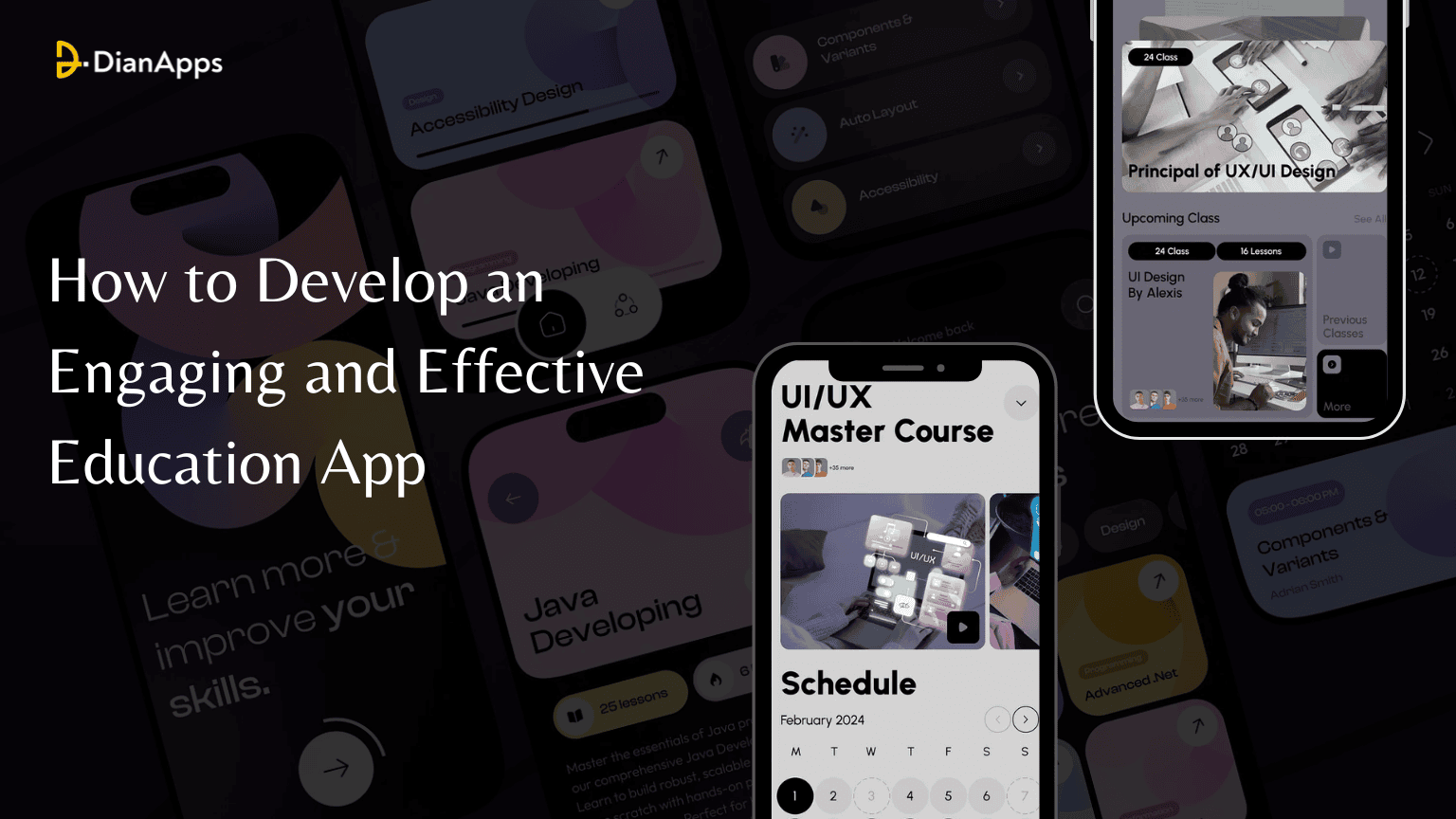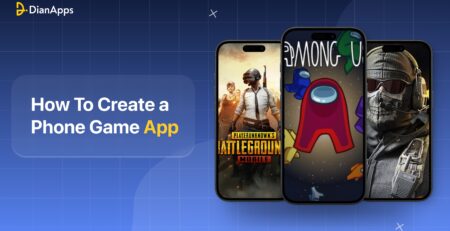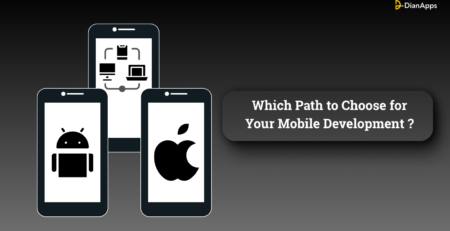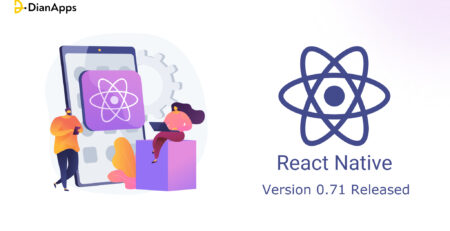How to Develop an Engaging and Effective Education App
Gone are the conventional days of traditional classroom learning. With the advent of highly advanced technologies, there is no doubt that education is now more accessible and flexible than ever. From interactive e-learning platforms to AI-driven tutoring apps, digital learning transforms how students and professionals gain knowledge.
The demand for education apps is continuously expanding. According to Statista, the global education app market is expected to reach $124.7 billion by 2027. As more people turn to mobile learning for convenience and engagement, businesses and educators seek ways to build interactive learning solutions.
However, by education, we do not mean degrees and certifications from Yale or Harvard University. In today’s technological landscape, education is more about gaining relevant knowledge and skills and applying them in real life.
But what makes an education app truly effective and useful? It’s not just about delivering lessons; it’s more about providing an interactive and user-friendly experience that keeps learners motivated and engaged. If you want to build a similar application for your business idea, be sure to get help from a leading Education & M-learning Development company like DianApps.
In this blog, you will get to explore the key steps, must-have features, and best practices for developing a successful education app that stands out in today’s competitive market.
Without any further ado, let’s dive in!
What Makes Education Apps More Engaging and Effective?
An education app focuses on delivering more advanced learning solutions than traditional methods, offering dynamic and interactive ways to acquire knowledge. Here are some key trends that can help you build an effective, future-proof educational app:
- Gamification for Better Engagement: Sometimes, learning can be boring, so to make it interactive and interesting, you can include features such as leaderboards, rewards, and quizzes. These features are used to keep the students engaged and curious to solve challenging aspects.
- AI-Powered Personalized Learning: AI-solutions can be used to provide customized content to learners based on their strengths, weaknesses, and progress, ensuring a customized experience.
- Augmented Reality (AR) & Virtual Reality (VR): Immersive experience provided by educational sites allows students to get insights from historical sites, conduct science experiments, or visualize complex concepts in 3D.
- Microlearning for Busy Learners: Are you the one who grabs every information at the last minute? If yes, then it is the best solution for you. It provides short lesson summaries to help users absorb information quickly, making it easier to learn on the go.
- Live Classes and Peer Interaction: Discussion forums, group projects, and real-time learning sessions foster collaboration and engagement.
- Voice and Chatbot Assistance: Accessibility of the learning material can be enhanced with AI-powered chatbots and voice assistants, helping users find answers and navigate learning modules effortlessly.
Recommended Read: What Are the Benefits of Using AI Chatbots in Edtech?
With these innovations, education apps are transforming learning experiences across all age groups. Next, let’s explore some latest stats on the e-learning industry.
Latest Market Statistics Related to the E-learning Segment
If you are planning to build an e-learning platform, be sure to analyze the latest innovations in the education sector. According to a Statista report, e-learning is one of the fastest-growing sectors globally because learners constantly seek to explore new concepts without needing to move from one place to another.
The Business of Apps report shows that there were, in total, 389,000 education apps on both the Google Play Store and the App Store in 2023. Moreover, it has been estimated that this number will reach 455k in the upcoming year.

- The education sector generated $5.93 billion in 2023, with a 15.1% rise from the previous year.
- Duolingo is one of the best e-learning platforms, which has generated around $315 million in 2023.
These statistics highlight the importance of developing a feature-rich application to succeed in this competitive market. Well, you are not required to feel pressurized; this blog has covered some essential features that can help you build an effective education app.
Different Types of Education Apps
The advent of technological advancement has given rise to various types of e-learning platforms. Let’s read further to learn about these innovative types of educational apps that are impacting the field of education:

Multipurpose Learning Platforms
Educational mobile apps have gained popularity due to their capability to provide multiple courses for learning in a single place. Learners from different platforms can get solutions on such apps; all they need to do is select a specific topic or graduate program and enjoy the seamless learning experience.
Educational Games
The Edtech industry has made the learning experience more fun and engaging with an innovation of educational game app trends. Gamified learning sessions allow individuals to stay encouraged and get proper engagement while learning.
Classroom Apps
Classroom apps are widely used by universities, schools, and colleges to enhance the students’ learning experience. These apps provide information related to classroom learning, notes, and instructions.
Assessment Platforms
This software allows students to evaluate their performance by checking their understanding of the relevant details and their marks on certain assessments. In such educational apps, you can give quizzes and practice tests and get personalized feedback to help students enhance their overall learning performance.
Specific Subject Apps
These types of educational apps focus on a single subject and provide complete information and resources related to that specific domain. These apps help students with self-assessment tools, engaging learning experiences, and multimedia content.
Learning Management Apps
Educational institutions consider these apps life saviors for managing various learning workflows, such as schedules, attendance control, communication, and work submission.
Importance of Developing an Educational App
The shift in the educational sector from the traditional style of learning to the eLearning platform has accelerated the growth of the edtech industry. The education market is expected to grow by $4.18 billion at an 11.78% CAGR from 2023 to 2028.
In this section you will get to learn about the different importance of education app:
- Accessibility: Educational apps allow you to seamlessly gain knowledge at any point from anywhere across the world. All you need to have is a good internet connection and a little technical knowledge.
- Diversity: The Educational app allows learners and trainers to provide different materials and resources, allowing them to get the proper information related to different subjects and topics based on their personal interests and perspectives.
- Collaboration: Online educational apps allow teachers and students to collaborate even when after are far away from each other. However, these platforms allow users to interact and share study materials. Also, these platforms allow you to provide solutions based on educational requirements, whether you want to build a mobile app or a web app.
- Gamification: When an online educational app transforms into a gaming educational platform, learners can easily understand concepts, making learning more enjoyable and interesting.
- Affordability: Compared to traditional learning resources such as textbooks, workbooks, sample books, and others, online learning is a far cost-effective measure. It reduces multiple cost factors such as additional expenses of lodging, traveling, equipment, and more. These points can be validated with important stats by IBM that represent that they were able to save up to USD 200 million by shifting to online resources.
- Personalization: A custom software development company ensures to provide a personalized experience for users by integrating different learning platforms.
Essential Features for Your Education App Development
Planning to transform your traditional learning business into an educational platform but confused with the features required to build an application? No worries. Here, you will get to learn about some important features required to build an effective and engaging e-learning platform.
Gamification
Most users look for personalized and engaging solutions, this is possible with the integration of gamification features in the application. Gamification makes education more fun, catering to learners who understand concepts better through interactive requirements and learners.
File Sharing
File-sharing feature of educational apps has made sharing videos, images, documents, and learning material more simple. This feature is used to enhance the collaboration and accessibility capabilities of the application.
Exams and Practical Tests
Edtech platforms must provide virtual spaces for mock tests and exams to evaluate the performance of the student and also support effective preparation.
Live Streaming
An education app must provide real-time interaction between students and teachers to build an effective and engaging learning landscape.
Customization
This feature enhances the students’ learning experience and provides a personalized experience to customers.
In-Session Chat
In-session chat is an important feature that allows students to ask questions, receive real-time answers, and participate in discussions, boosting understanding and engagement.
Hand Signal System
An app must also have some non-verbal feedback options, such as you can raise a hand, to improve communication during live sessions without interruptions.
Offline Schooling
Educational apps must provide access to a few important features without internet access, such as downloading lessons to ensure continuous learning capabilities.
Session Recording
Educational Apps must allow students to record the session to get access to the lessons for later review, preparation, and enhancing retention.
Now, as we are moving ahead to the process of education app development, it is important to first understand the Key Factors In Choosing An eLearning App Development Company.
Process of Developing an Effective Education App
When you are planning to develop an effective educational app, understand that you need to follow a proper development process. Here are some important steps related to the development of educational apps:
Market Research and Planning
This step involves thorough research for education app development. First, you need to understand your target audience and decide which type of app software to build. Once you have a fair idea for your educational platform, be sure to analyze the requirements of your target audience. This factor will help you understand whether you need an educational app or not.
Define Features and Functionalities
Once you have researched well about your target audience well, make sure to identify unique features and functionalities to build a standout educational app. Now, the question is how to identify appealing features:
- Consider User Feedback: While planning to develop an application, ensure to explore user reviews on platforms like the Apple Play Store and Google Play Store. These reviews will provide you with a definite idea of what users want in an educational app.
- Engage Directly with Users: If you want to gather feedback from the target audience, be sure to conduct polls or surveys. This process provides a deeper understanding of their preferences and helps shape your app’s functionality and design.
Design Innovative UI/UX for the App
Users are the main reason behind the success and need of the mobile apps. They are responsible for boosting user numbers, increasing revenue for your company, and increasing conversions.
The app is developed based on the user’s interest to provide a user-friendly experience to them. Users must be eager to download and use the application. An app must be user-friendly, which means that buttons and text must be placed in readable places.
While designing an application, ensure that UX has a fluid and intuitive interface to boost conversion rates. This app is not only used by students of any particular age, but even teachers, trainers, and professors also use such apps. Due to its wide user base, it is essential to ensure that they are usable, provide easy motion, and have already-learned curves.
Recommended Read: Steps To Hire UI/UX Design Firms
Development of an Application
Once an educational application design process is completed, it’s time to move ahead in the development phase. This phase includes all the coding parts and integrating educational app features.
There are various innovative tools and technologies available to integrate features like audio and video calls. You can integrate these features using SDKs such as Twilio and Agora.
Testing
Once you completely develop an app, make sure to take it through an essential app development process—testing. Education apps must undergo different types of testing, such as unit testing, automated testing, and more. To complete this step, software developers opt for different types of testing platforms such as quality insurance, beta, and user testing.
Deployment
This is one of the most important steps to identify how your application performs in this competitive environment. Moreover, at this stage, you complete the app store listing, optimize the educational app for SEO purposes, and implement a top-notch marketing strategy for app promotion.
Final Words
On a final note, developing an educational app presents a great opportunity to empower learners from all over the world. By leveraging all the innovative features and functionalities, you can make an application that offers users a rewarding learning experience.
With an increasing need for online education applications, the possibilities of success within the custom eLearning app development market have increased. Whether you are a business owner, investor, or educator, understand that developing an e-learning mobile app is a valuable investment that helps you stay ahead in this competitive market.




